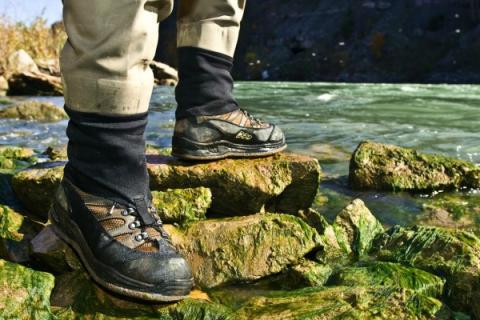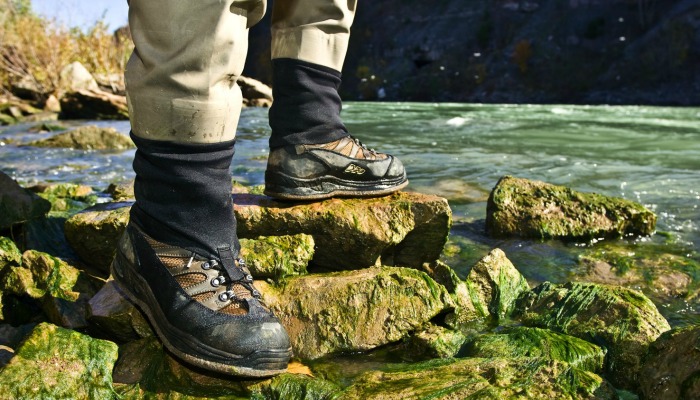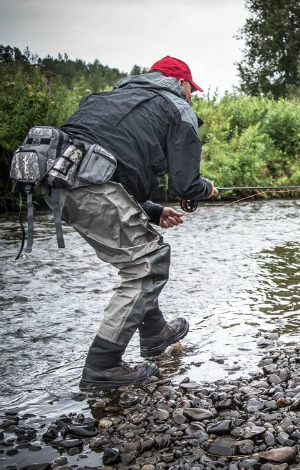
You know that feeling you had in school, the one where you tipped your chair back just a bit too far? Taking a fateful misstep in a trout stream can be an equally heart-stopping experience. While a blunder on crowded opening day may cause a few chuckles—much like taking a tumble in the third grade—plunging into a remote stretch of icy water can literally become a life-and-death situation.
 |
| Great wading boot soles are quiet, light, and provide traction in slippery conditions. |
A quality wading boot sole that provides traction and support is the angler’s first line of defense against dangerous falls. When it comes to today’s gear, anglers have a variety of options. The wading boot sole that will work best for you depends on the type of water you fish and the time of year when you do so.
The Feel of Felt
Felt soles have been around for decades, and provide a great grip on most stream beds. Felt is quiet, which can be a huge advantage when targeting spooky fish. While felt is a superior material for in-stream use, it does tend to lack the bite necessary for climbing in and out of steep banks. If you are a winter angler, you should also know that felt quickly loads up with wet, sticky snow. This can make the trek to and from the truck a bigger adventure than you bargained for.
Felt has a porous nature, which can trap organisms. It is also slow to dry, making it a potential conduit for transferring Didymo Algae (rock snot), New Zealand Mudsnails, and Whirling Disease. These nasties have the potential to severely alter stream conditions and ruin angling opportunities for decades. Several states (seven at the time of this writing) have outlawed the use of felt soles. Be sure to check local regulations before even considering the use of felt soles.
 |
| Targeting skittish trout often requires serious stealth. A good wading boot sole will allow you to sneak into casting range. |
Advancements in Rubber
The recent ban of felt soles has led to advances in rubber sole design. Soles made of soft, sticky rubber—compete with Vibram-type lugs—are quickly becoming popular. Although they still do not provide the same traction as felt, soles of this design are far superior on stream bottoms compared to the traditional heavy rubber lugs. They do outperform felt when negotiating muddy stream banks, however, and don’t pack in the snow.
Studs Add Stability
Studs add a great deal of bite when working over slippery stream beds, as well as algae- covered rocks along the bank—a common scenario along well-shaded trout streams. Some models—rubber-soled in particular—come packaged with studs. Studs have a habit of backing out, so plan on occasionally replacing ones that are worn or missing. It is also important to note that boots with studs should not be used in boats as they will mar the floor.
Can’t Choose? Don’t.
As you can see, certain sole materials and designs work better in particular situations. If you fish a variety of river types throughout the year you may want to invest in more than one pair of boots. You can also consider boots that feature interchangeable soles, an option that can provide added versatility from a single pair.
If you opt to go with two separate pairs, it is a good idea to purchase one pair for warm weather and the other for cooler conditions. The pair selected for cold weather fishing should be a size larger than usual. The extra room will allow for wearing thick wading socks and retaining plenty of trapped air, which does the insulating.
Wade Responsibly
Finally, we as anglers must do our part to prevent the spread of disease and invasive species by educating ourselves on the proper care of our wading gear. In general, this means freezing or correctly cleaning waders and boots, especially after a trip a stretch of water known to host an invasive species. There is a wealth of additional data on the web about how to accomplish this and chances are your state’s resource agency has links to such information.
- 6528 views

